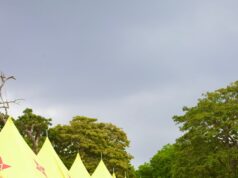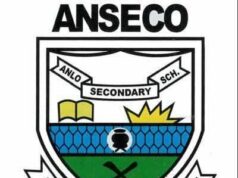The plant and the university began an arrangement in 2015 to train some of the students of the university at the plant and the MoU is intended to formalise the initiative.
The Managing Director of ACARP, Dr Richard Amponsah, signed the MoU on behalf of the plant, while the Pro-Vice Chancellor of KNUST, Prof. Samuel Nii Odai, signed for the university.
Speaking at the ceremony, Dr Amponsah explained that the MoU had been necessitated by a gap identified between the theoretical knowledge acquired by students and the actual practical work.
“Industries complain that students who come out of the universities are not able to fit properly in the world of work and those of us in industry see the struggle students go through when they come out,” he said.
He said ACARP saw it as a strategic corporate responsibility to engage with KNUST, which trains science students for industry, and also expressed the belief that the students would be beneficial to the expanding facility.
Under the agreement, ACARP would take on not less than 15 KNUST interns periodically.
Collaboration for SDGS
Describing the meeting between KNUST and ACARP as progressive, the Board Chair of the plant, Dr Kwaku Ofosu-Adarkwa, said the signing of the MoU was aimed at a strategic policy drive to make ACARP a pivot for research activities in waste management.
“Global trends now call for such collaborative initiatives in the light of the need for all of us to work towards the attainment of the targets of the Sustainable Development Goals (SDGs) 2030 to guide the global developmental agenda in an integrated manner,” he said.
He stated that at the core of the 2030 agenda were water and sanitation, while Goal Six of the SDGs on water and sanitation had clear linkages with health, food security, climate change, resilience to disaster and ecosystems, among others.
“Reaching the ambitious objectives of the 2030 sustainable development agenda pertaining not only to Goal Six demands that we ensure clean environmental sanitation management to protect our ecosystems and their resiliencies,” he added.
Impact of collaboration
Prof. Odai, for his part, said the collaboration between the university and ACARP was very critical to enable those who were trained to make the maximum impact on their communities.
He indicated that since ACARP concentrated on the waste already generated, KNUST would focus on the people who generated the waste, with research on how to prevent and reduce waste generation and the hauling of waste.
A final-year KNUST student on attachment at ACARP, Ms Adeline Angua Mantey, said she had already learnt a lot from the facility that would help her choose a very relevant research topic for her dissertation.
BY: Graphic Online






















